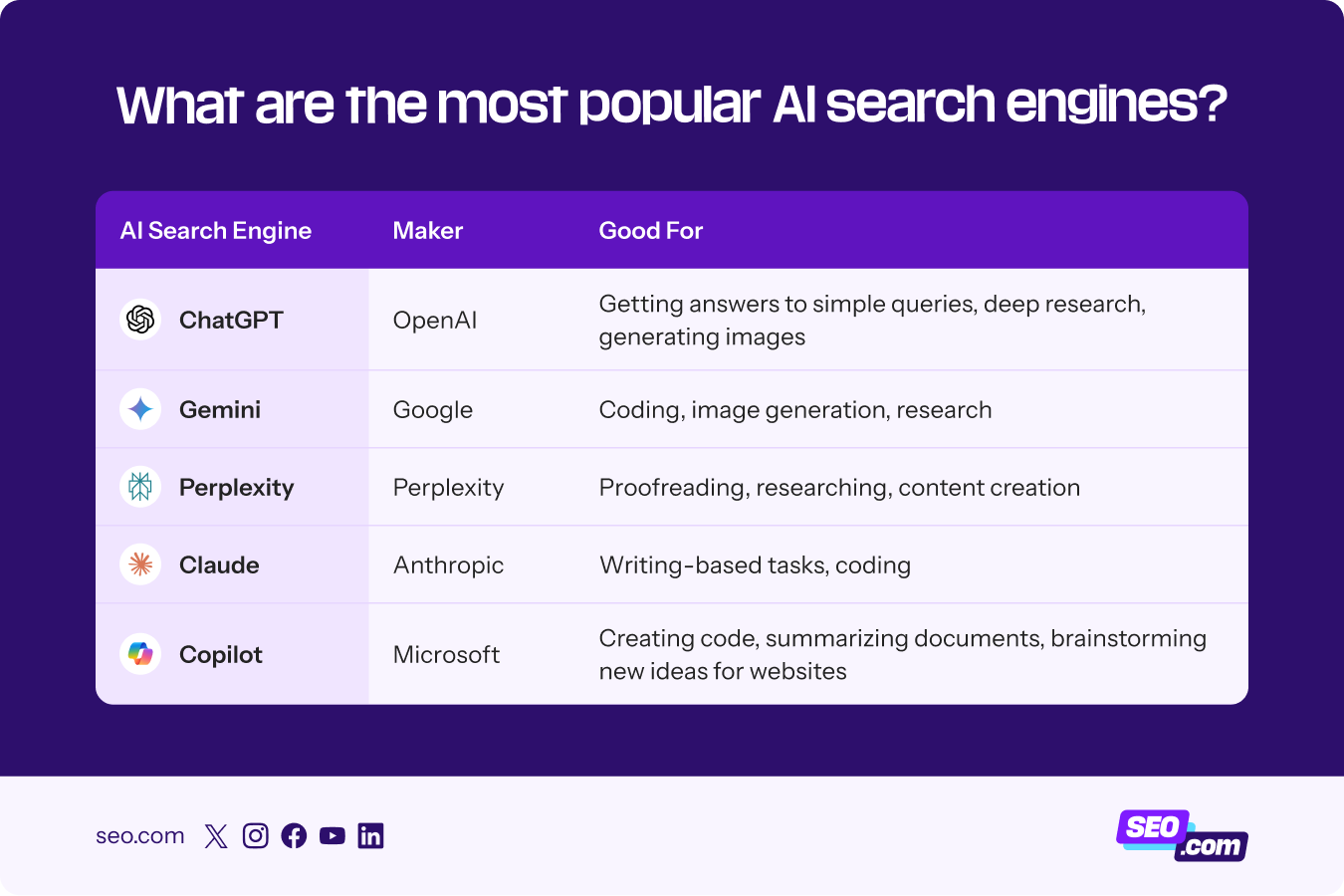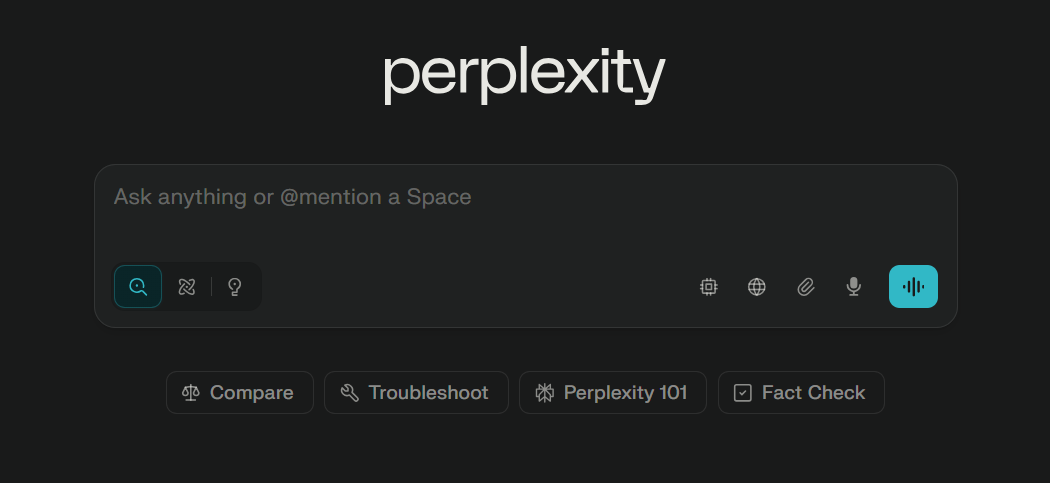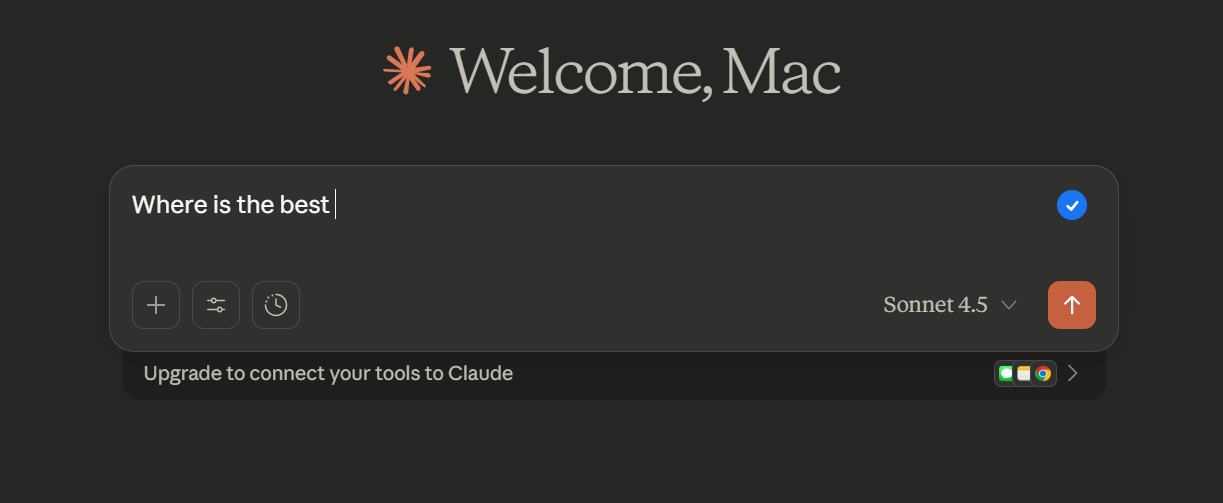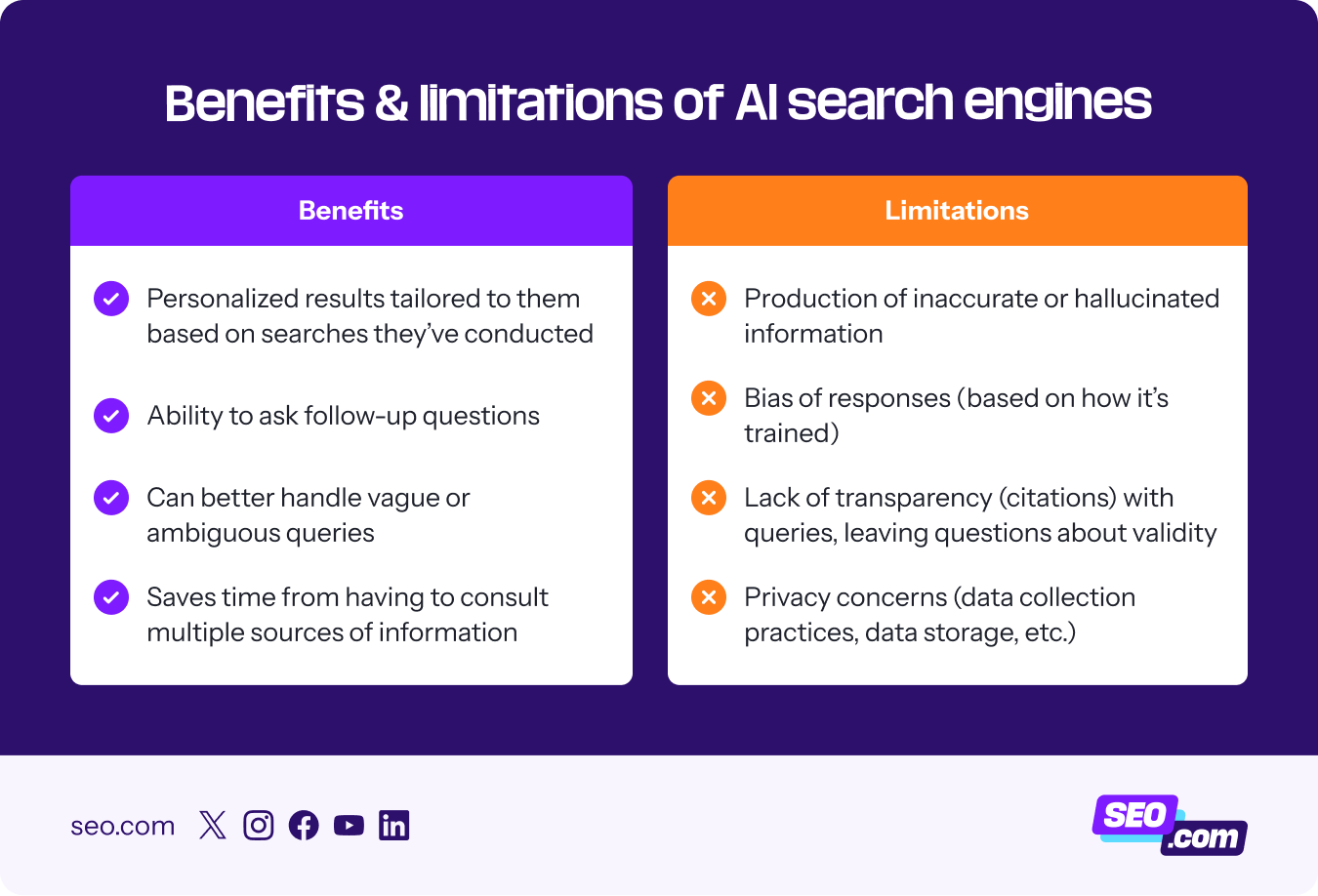ChatGPT. Perplexity. Claude. Gemini.
You’ve likely heard these names floating around a lot in the past few months. They’re popular AI search engines, and they’re changing the way people search online.
So what are AI search engines and are they the future of search?
Discover:
- What are AI search engines?
- How do AI search engines work?
- What are the most popular AI search engines?
- Are AI search engines the future of search?
- FAQ on AI search engines
What are AI search engines?

AI search engines are search entities that use AI to help them synthesize information, process it, and deliver summarized responses for users. These engines tend to take a more conversational approach when engaging with users and deliver helpful, contextual information, rather than lists of links.
How do AI search engines work?
There’s a lot of nuance with AI search engines and how they work, but the basic operation looks like this:
- A user inputs their prompt or query into the AI search engine
- The engine, using its dataset and sometimes the web, searches through multiple sources to find information
- It then synthesizes all the information and summarizes it for the user
- The AI engine outputs the summary for the user
An important distinction to make with AI search engines is that they’re essentially doing the work for the searcher.
When you conducted your search on a traditional search engine in the past, you’d sift through links in the search results. You’d have to figure out which page looked the most relevant to your query, click on it and read the information from that page to make sure that it had the answer you were looking for.
Now, AI search engines take all of that work out of the equation for the user. They’re the ones sifting through the pages, finding the information that’s most relevant and helpful, and delivering it to the user.
What are the most popular AI search engines?

So, who are the pioneers leading the AI search charge? Here are some of the most popular AI search engines in the space:
ChatGPT

ChatGPT is an AI search engine that comes from OpenAI. It can help you do anything from getting answers to simple queries to doing deep research on a topic to generating images. ChatGPT is one of the most popular AI search engines, with an estimated 700 million weekly active users.
Gemini

Gemini is an AI search engine from Google. This engine leverages AI and Google Search to provide responses to users that input queries. It can do things like coding, image generation, research, and more.
Perplexity

Perplexity is another popular AI search engine people use. This AI search engine can help with tasks like proofreading, researching, and content creation.
Claude

Claude is an AI search engine from the company Anthropic. This AI search engine is great for writing-based tasks and coding.
Copilot

Copilot is an AI search experience that comes from Microsoft. With Copilot, you can create code, summarize documents, and brainstorm new ideas for your company’s website.
Are AI search engines the future of search?
Yes (at least part of it).
Search engines like Google and Bing aren’t going away anytime soon. Google especially has a stronghold over the market, which makes it difficult to surpass with any type of search engine.
That doesn’t mean, however, that AI search engines won’t be a part of the future. In fact, they’re very likely to play an important role in the future of search.
The main reason that AI search engines are the future of search is that they offer something unique that traditional search engines don’t offer: Conversation.
When you use a traditional search engine, there isn’t much interaction between you and the engine. You type your query in the search bar, and you look at the search results for the information.
While Google has AI Overviews to help simplify the search experience, it doesn’t invoke a conversation aspect like AI search engines do.
Other AI search engines, like ChatGPT and Perplexity, create a conversation dynamic where you search a query, get information, and ask follow-up questions. It uses the context of the previously shared information to help further push the conversation.
This type of search experience is appealing to many people. Not only do the AI engines summarize the information for the user, but they can ask follow-up questions and get answers without having to do much extra work.
So, while AI search won’t be the only way to search in the future, it will still play a prominent role in the search experience and need to be accounted for.
FAQ on AI search engines
Have additional questions about AI search engines? Get answers below!
What are the benefits of AI search engines?

AI search engines are offer dozens of benefits for people who use them, including:
- Personalized results tailored to them based on searches they’ve conducted
- Ability to ask follow-up questions
- Can better handle vague or ambiguous queries
- Saves time from having to consult multiple sources of information
- And more!
What are the limitations of AI search engines?
While AI search engines offer a lot of benefits, there are some drawbacks and limitations with these tools. Some of the challenges of AI search include:
- Production of inaccurate or hallucinated information
- Bias of responses (based on how it’s trained)
- Lack of transparency (citations) with queries, leaving questions about validity
- Privacy concerns (data collection practices, data storage, etc.)
Do I need to optimize for AI search engines?
Yes, you need to optimize for AI search engines if you want to be able to reach your audience in the future.
While traditional search engines like Google remain dominant in the search space, AI search engines are carving out a small space of their own. Not to mention, even search giants like Google are delivering their own AI search engines like Gemini and AI Mode.
AI search engines have the appeal of allowing people to do research without having to look around to multiple links, read through pages of information, and more. It creates convenience for people, which makes them more likely to use it in the future.
So, if you aren’t creating a strategy to help you reach those people through AI search engines, you’re going to miss out on an important touchpoint in the user journey.
Start optimizing for AI search engines today
If you want to stay ahead with your search strategy, start optimizing for AI search engines today. Not sure what to do or how to execute it? With our AI SEO services, we’ll take care of everything for you.
Connect with us today to learn how our AI SEO services can help boost your visibility in AI search engines!

Beat Your Competitors Tomorrow
Be where your customers are and your competitors aren’t- AI search results. See how with OmniSEO®!

Beat Your Competitors Tomorrow
Be where your customers are and your competitors aren’t- AI search results. See how with OmniSEO®!

What to read next
- Feb 18, 2026
- 8 min. read
- Feb 17, 2026
- 10 min. read



